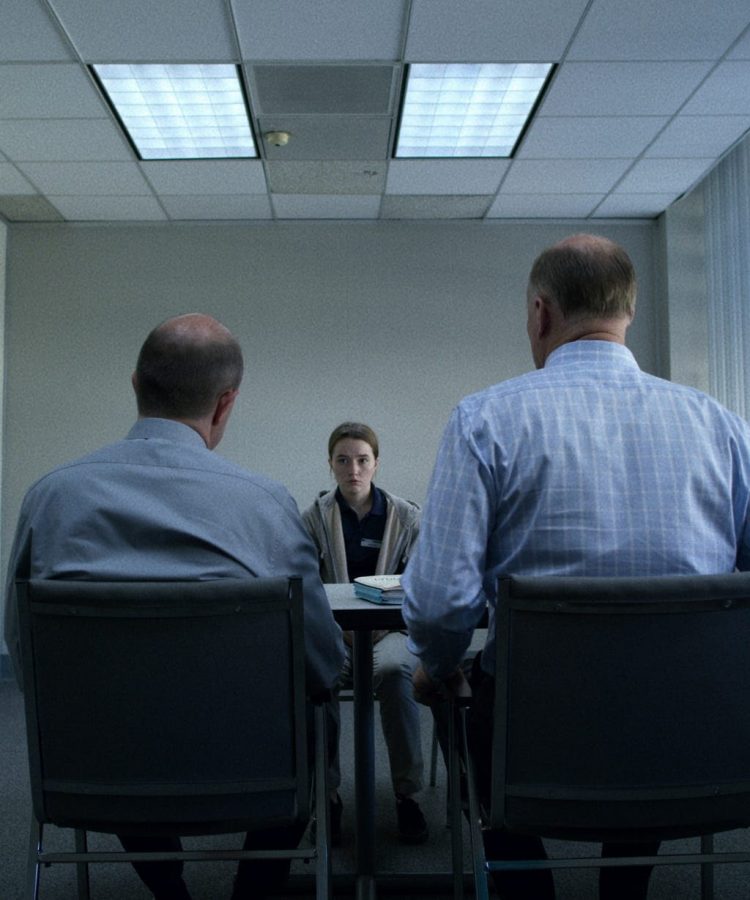“Unbelievable” Calls Attention to Sexual Assault
“Unbelievable” is a heart-wrenching new Netflix miniseries about sexual assault. The show debuted on Sept. 13, 2019, and has deeply resonated with audiences for its piercing depiction of why sexual assault goes severely underreported. It follows two sharply contrasting narratives over eight episodes.
Based on the 2015 Pulitzer Prize-winning piece, “An Unbelievable Story of Rape” by T. Christian Miller and Ken Armstrong, the series opens in Lynnwood, Wa., in 2008, with the story of 18-year-old Marie Adler (Kaitlyn Dever).
Her assault is handled by the authorities in a disturbing, but all too familiar, way. Arriving on the scene, officers question Adler without regard for her emotional state. Immediately, she is asked to recall the event. Gruesome flashbacks pierce through her dialogue. This occasion is only the first of four where she must repeat the incident in the first episode, each time reliving the trauma.
Authorities take advantage of Adler’s vulnerable state by twisting her words and coercing her into saying that she falsely reported the assault. She is no longer a victim to the detectives, but instead a criminal wasting their time. Above all, she is thought to have been lying for attention, as pointed out by her foster mother who directed the detectives to look into her past, which included abuse.
In the following episode, a second narrative is introduced, where everything is handled properly and respectfully, which seems surprisingly unrealistic because it is rarely the way rape cases are treated.
The scene opens in Golden, Co. in 2011. Detective Karen Duvall (Merritt Wever) meets survivor Amber (Danielle MacDonald) on the scene of the crime. Her first question to Amber is simply, “How are you?” From the initial interview to the exam at the hospital, Duvall ensures that Amber is comfortable and feels safe. Everything from the tone of her voice to her insistence on accuracy from her team is what one hopes for in an assault case.
The only similarity between the two narratives is the perpetrator. Duvall finds out from her husband, a police officer in another district, that there is a similar case. She meets with Detective Grace Rasmussen (Toni Collette), who is leading the case. Together, the two work tirelessly to uncover a serial rapist, who began in Washington in 2008 with Adler.
The colliding of the two narratives is particularly heartbreaking. Observing Duvall and Ramussen’s work ethic and determination, one is constantly reminded of the failings of Adler’s detectives, Pruitt (Eric Lange) and Parker (Bill Fagerbakke).
Through the poignant intertwining stories, it is impossible not to wonder if, had those detectives been as diligent in 2008, the 28 accounts of rape charged to the perpetrator may never have happened, if only Adler and all of the women had been given the same treatment as Amber, and a clean crime scene suggested that it was the perpetrator who outsmarted the system, not a young woman seeking attention.
As pointed out by Adler’s lawyer, “no one ever accuses a robbery victim of lying or someone who says he was carjacked.” As all crimes have a relatively consistent low percentage of false reporting, gender cannot be ignored, as this atrocity disproportionately affects women. After a disagreement with a male colleague, Rasmussen frustratingly asks Duvall, “Where is the outrage?”
Being that one in five women are assaulted (based on what is actually reported), two female detectives have a more acute understanding of the issue. In the same scene, Rasmussen says that if her male counterparts had the same fear that it could happen to them, the approach would be different. Therefore, it does not go unnoticed that it was two men that handled (or failed to handle) Adler’s assault.
The showrunner, Susannah Grant (Erin Brockovich), told The Atlantic that her intention was not to vilify Parker and Pruitt. In reality, they had much less experience with rape cases than their counterparts and their district did not have a separate sex crimes unit. Still, their ignorance to the issue speaks to how gender affects their approach. In both real life and in the show, these detectives went unpunished for their negligence.
As the series points out, male police officers have high rates of domestic abuse and yet, says Rasmussen, are still permitted to walk around with a badge and gun. In the same sense, two men that faced no discipline for not only neglecting to follow through on a case but also prosecuting the survivor continue to hold power in deciding other survivors’ fates. For this reason, the cycle of not reporting abuse and distrust in authorities continues. The denial of the survivor’s agency as seen through Marie only works to revictimize her. She tells her therapist, “even with good people, even with people you can kind of trust, if the truth is inconvenient … they don’t believe it.”
The series demonstrates precisely how damaging rape culture is and continues to be. The implicit bias of Parker and Pruitt serves, as said by Grant, to make the audience uncomfortable. The doubt of rape survivors built into the system is founded in the everyday language of people that justifies authorities dismissing them.
By depicting the series from Adler’s perspective, her voice and that of survivors are given power over those that silence them. Too often, the perpetrators are given power in the narrative, both on the screen and in real life. Brock Turner, the infamous Stanford University student-athlete convicted on three accounts of sexual assault in 2015, was only given six months in jail because the judge was “concerned about the impact of prison” on Turner. He was released after three months.
In weaving Adler’s life with that of hardworking detectives, the series demonstrates the power in point of view and, above all, the necessity to believe victims but empathize with them as Duvall and Rasmussen did.
“Unbelievable” forces viewers to reflect on how they may have contributed to this system.















































































































































































































